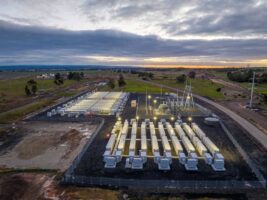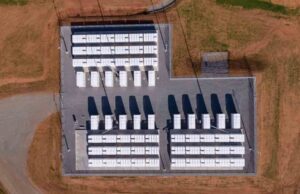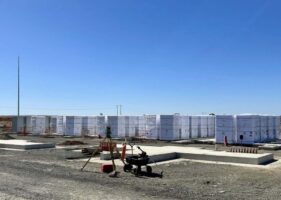Australian energy giant AGL says it is partnering with US-based energy technology company SLB to pilot a first-of-its-kind nickel hydrogen battery at its Torrens Island power station in South Australia.
The small 180kW/360kWh, pilot-scale nickel hydrogen battery will be installed in 2025 at Torrens Island, where AGL has already installed a more conventional 250MW, one hour battery as it seeks to transition the former gas hub into a new clean energy precinct.
Nickel hydrogen batteries have long been used in the aerospace industry, but expensive platinum catalysts have priced the technology out of use in batteries for grid-scale storage solutions.
California battery start-up EnerVenue, however, says it has developed an inexpensive nickel-molybdenum-cobalt alloy catalyst which makes the technology potentially viable for standalone storage options, providing up to 30,000 charge cycles and a 30-year lifespan.
According to EnerVenue – which entered into an agreement with SLB in mid-2021 – its batteries are also fireproof, outperform lithium-ion batteries across an array of metrics, and after 30,000 full cycles still boast 86% capacity.
The oxidation-reduction (redox) reaction also ensures no net consumption during round-trip charge or discharge reactions, enabling batteries to remain maintenance free throughout their lifespan.
The technological virtues of nickel hydrogen batteries mean cheaper operational and capital expenditure, and with recyclable components the batteries are considered to be more sustainable and environmentally responsible than traditional lithium-ion batteries.
AGL will test the small-scale nickel hydrogen pilot battery for two years. The battery will provide storage for on-site power use.
“This is the first new battery technology AGL is piloting since it established an emerging battery technology team. This team is exploring the potential opportunities that the latest and emerging battery technologies can provide,” said Travis Hughes, AGL general manager of Energy Hubs.
“Nickel hydrogen batteries have been identified as a technology which may offer different benefits when compared with lithium-ion batteries such as the potential for a longer cycle life, the potential to withstand a greater temperature operating range – meaning more potential applications and reduced need for cooling – and the potential cost benefits associated with these advantages.
“Exploring and testing innovative technologies as they are developed and bringing them to market at scale is critical as we try to accelerate our efforts to transition our business over the coming decade.”
Oktay Sancar, SLB’s vice president of energy storage, said the rial will help de-risk early-stage technology by augmenting the solutions with advanced system design, integration and deployment optimisation.










